Decisions add up to solutions
Rapid Allweiler celebrated its 80th birthday in 2012 becoming part of a select group of companies in South Africa that have proved that consistent quality and service lead to longevity. Established as a general engineering business in Booysens, Johannesburg in 1932, the company continues to grow from strength to strength.
From modest beginnings, supplying their own range of borehole and gear pumps to the market, the two founders, Mr AJ Hindry and H Day, soon saw the gap in the market for a quality centrifugal pump.
In 1952 the partners successfully established a partnership with Allweiler AG, the oldest pump manufacturing company in Germany. Allweiler AG took a 35% shareholding in the South African company. The company changed its name to Rapid Allweiler and initially acted as Allweiler’s distributor before setting up to manufacture the products locally. This partnership continues to flourish today.
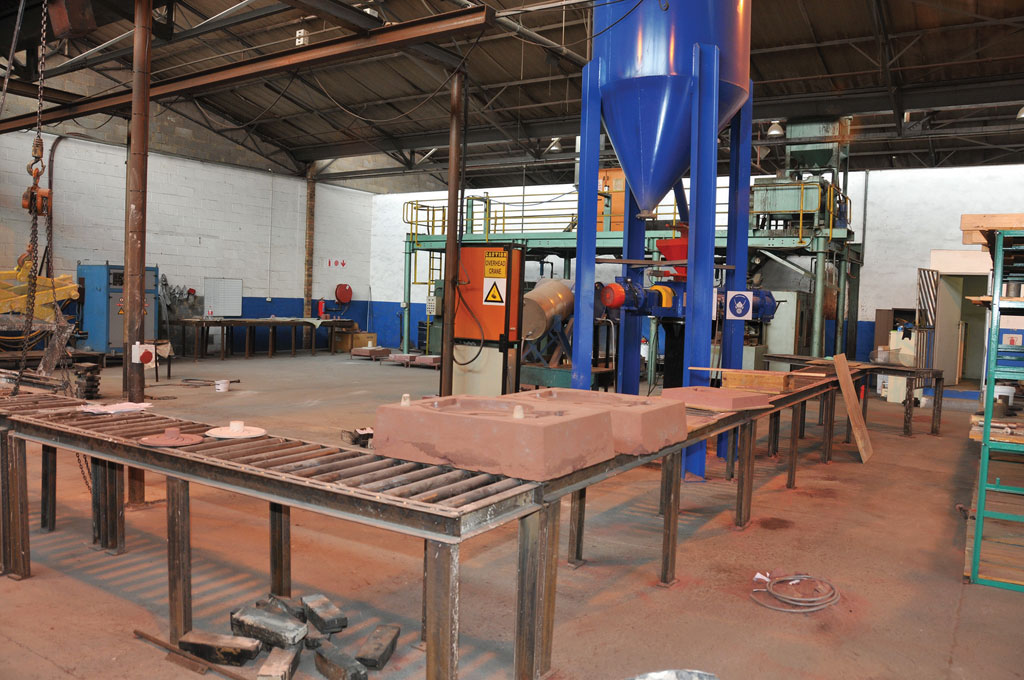
A general view of the Rapid Allweiler foundry in Spartan, Gauteng
It remains, however, primarily a family business. Current MD Caroline Houghton, who took over the running of the company 10 years ago, is the granddaughter of one of the founding partners and husband Garry, who joined the company seven years ago, is the Operations Director.
“Allweiler, Germany’s oldest pump manufacturer, was established in 1860 and is a member of the Colfax Corporation, which acquired Allweiler in 1998. The relationship between the two companies has been forged over many years and today we even export product and components back to Germany for use in Europe,” said Caroline Houghton.
However it has not been plain sailing for Houghton, who believes that she is still the only female MD in this male dominated industry.
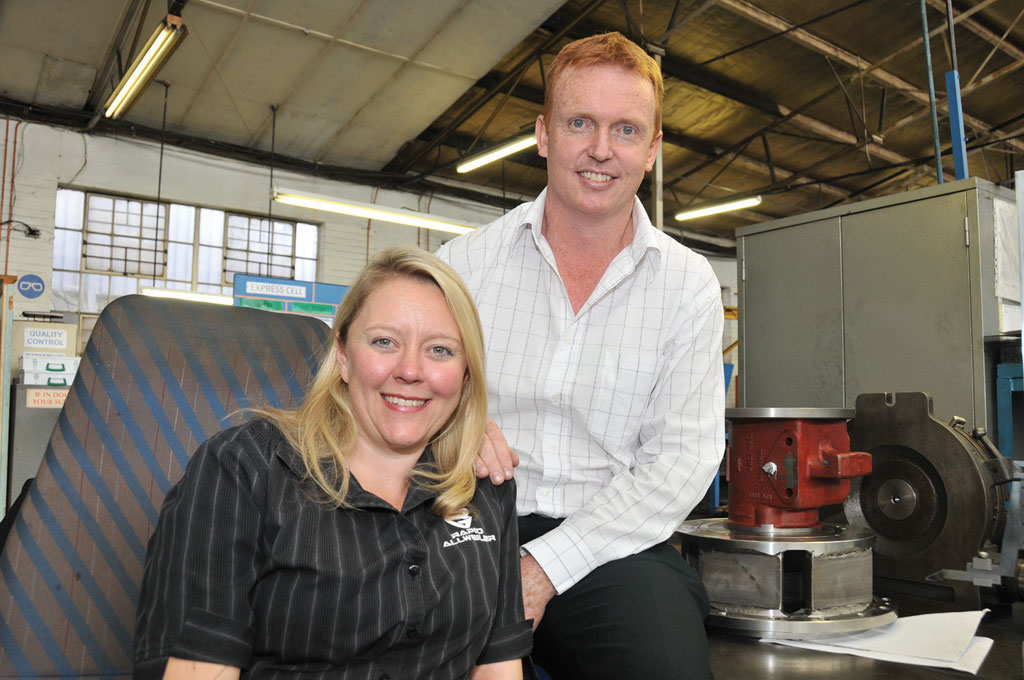
MD Caroline Houghton with husband Garry
“My training is in the food and nutrition environment and before returning to South Africa to run Rapid Allweiler I was food and beverage manager for a prominent hotel in London. I had returned to South Africa on a family visit and I soon learnt that my grandfather’s business was experiencing problems,” explained Caroline.
“They had tried various routes to get an MD in place, with no success. This is when I jumped in and reluctantly my grandfather, who had been retired for several years, agreed that I could take up the challenge. What does a woman know about engineering or manufacturing were his thoughts?”
“But I did not believe that this would present a problem as I feel that good management principles are the same in any company or industry. My first task, working in close collaboration with a group of consultants that comprised experts on all aspects of business and management, was to restructure the company.”
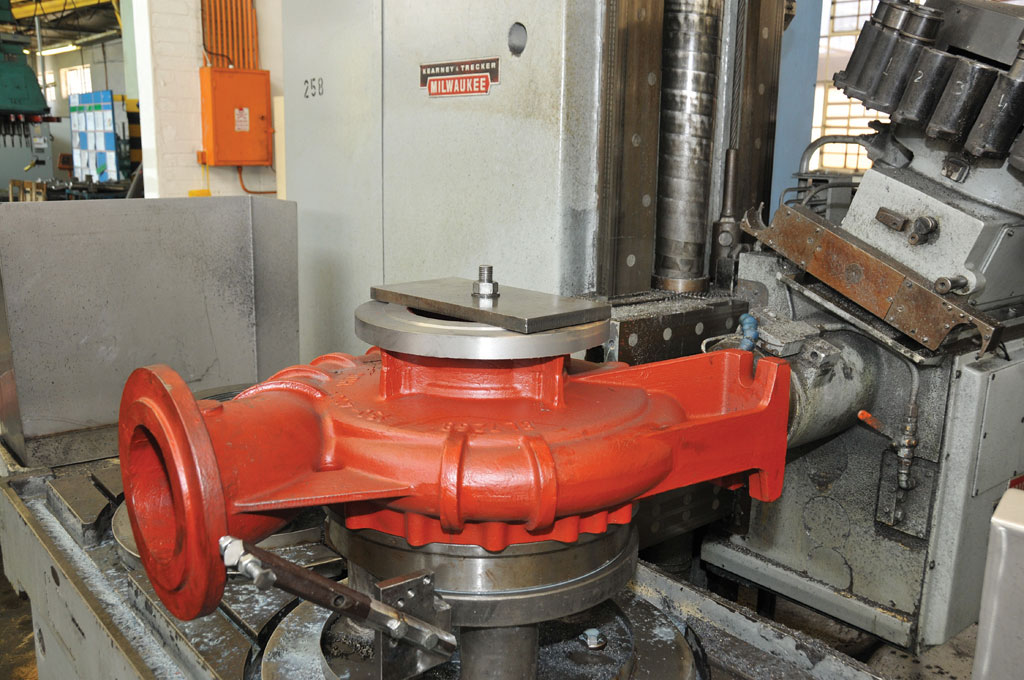
A pump being machined
“We had to implement several tough changes, which I felt were necessary to ensure the future competitiveness of the business and return it to profitability. Establishing a good relationship with Allweiler again was another key achievement.”
“A new corporate image was introduced, with redesigned logo and brochures, and a bright new look for the offices and workshops. Changes in the manufacturing processes took longer but they have transformed the whole environment in this area and we now have something that we can work with.”
“Changes of this nature were not easy especially as we had to get the buy-in from staff, and secondly because of the cost involved. But today over 80% of our staff have 10 or more years of service and they realised that what we were doing were positive, long-term changes.”
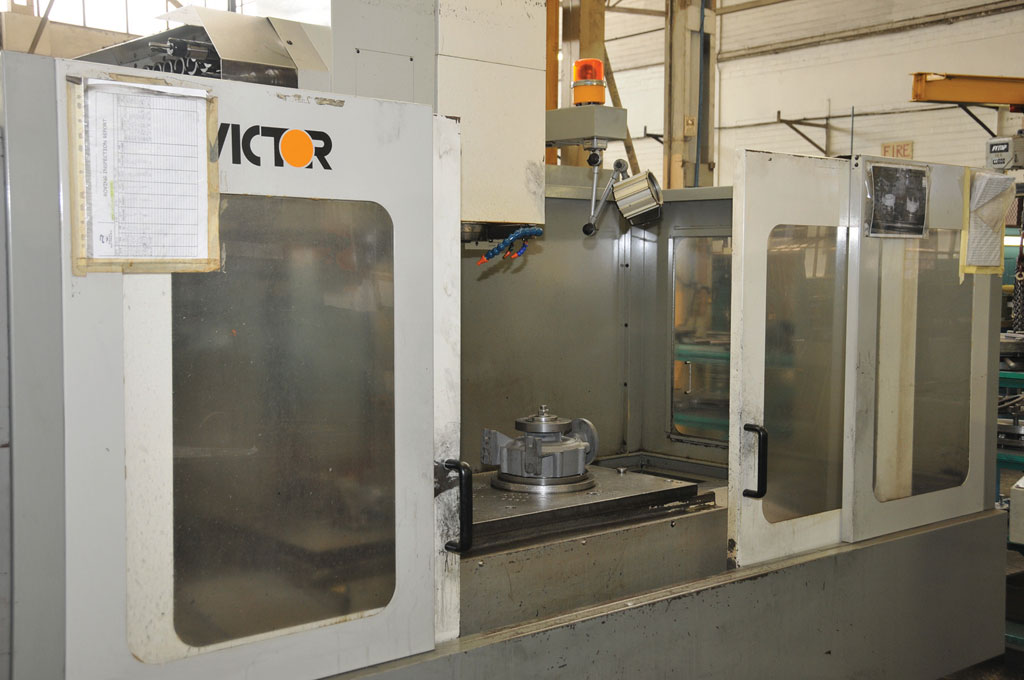
A component being machined on a Victor CNC machining centre
“We also integrated technological advances into as many aspects of the business as possible and the emphasis of the business was on service. The company had a proud history and one that was associated with quality, which I did not want to lose. Still today we will have a farmer calling to say he needs a spare part for a pump that he purchased in 1975 and we will supply him.”
Despite the challenges of implementing these changes and adapting to a new MD and senior management, Houghton is proud to report that the business has grown substantially.
However, she does not take the credit for this accomplishment: “I don’t run this business, we run it as a team, and this has always been my philosophy,” she says.
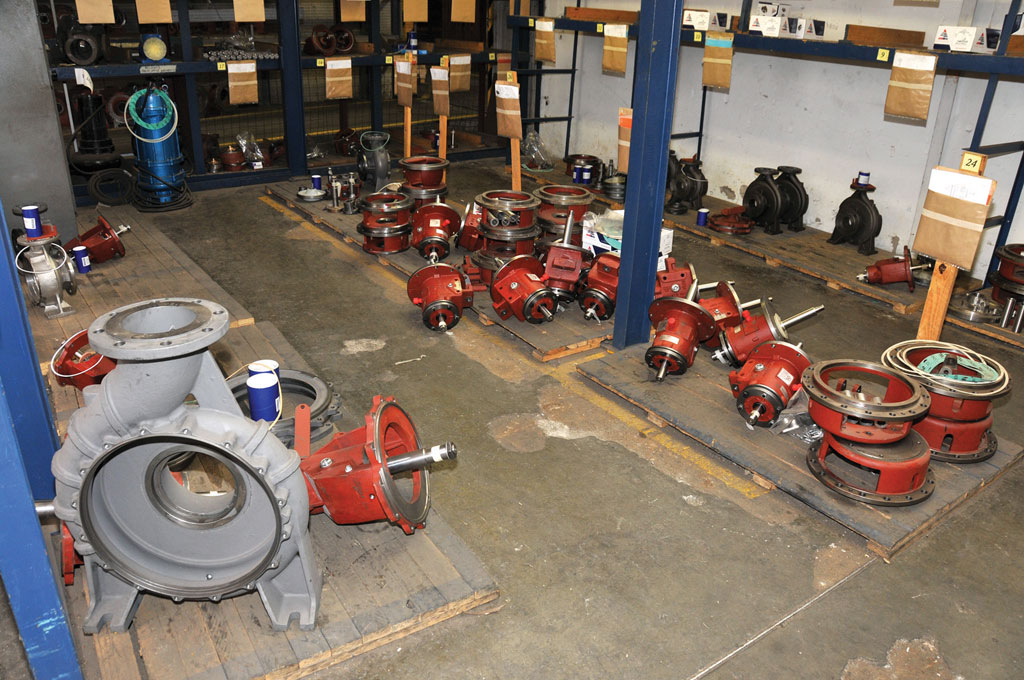
Various components in the storeroom
Although the Allweiler products are not at the low-cost end of the market, Houghton is confident that both the quality and technology of the pumps are superior to most similar products available in South Africa.
“The South African market is somewhat price-sensitive but it is becoming increasingly important, particularly in the mining and petrochemical sectors, for pumps to be energy-efficient.”
“An efficient pump saves on energy and, in many cases, the electricity saved is worth many times the capital expenditure of the pump itself,” she says.
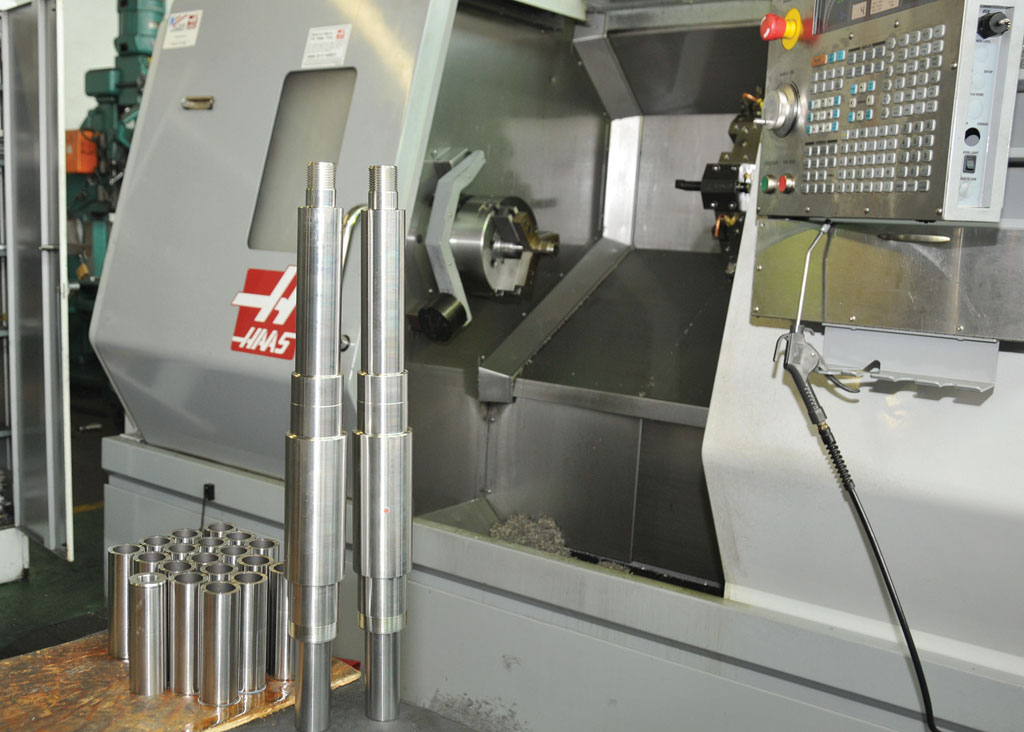
Shafts and sleeves are machined on a Haas CNC lathe
“This is especially relevant in view of the Department of Minerals and Energy’s renewed focus on energy-efficiency and saving.”
Rapid Allweiler is a blend of German engineering and technology with quality products, precision machining and knowledge. The company has an extensive range of pumps and pumping solutions available.
Locally manufactured pumps include centrifugal pumps, chemical processing pumps, multi-stage and heat oil transfer pumps for industrial, petrochemical and agricultural uses, to name a few.
The fully imported range from Allweiler includes screw pumps, progressive cavity, side-channel, macerators and peristaltic pumps.
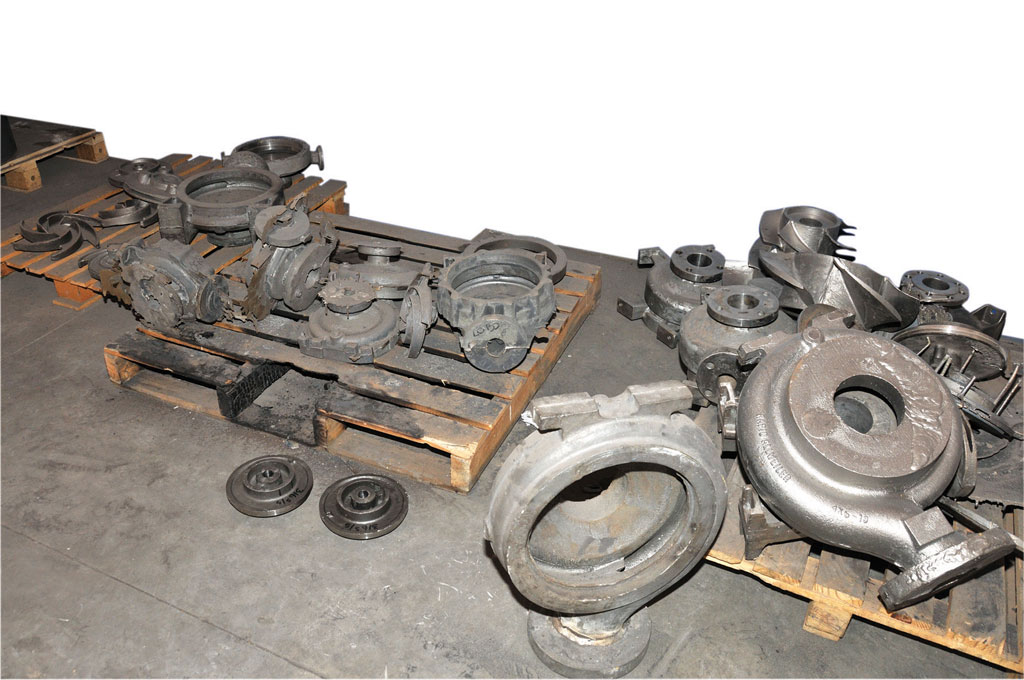
Various castings manufactured by Rapid Allweiler for the company’s own use
The company is in addition the sole Southern African distributor for the Dutch manufactured Houttuin and Swedish manufactured IMO pump ranges. Houttuin’s pump range caters for the chemical and petrochemical industry, tank farms, power plants, offshore refineries, shipbuilding and marine, food and beverage, plastics, sugar and environmental industries.
Another product from the Colfax range – the centrifugal pump for the marine industry – is available to the local market as well. Houghton reports that Rapid Allweiler services the entire Allweiler, Houttuin and IMO product range in Sub Saharan Africa with its trained service and maintenance team, with pumps in plants such as the Kelvin power station, on the East Rand, and Engen’s petroleum plant in Kwazulu-Natal.
The company intends to manufacture an inline centrifugal pump range locally to DIN 24255 specifications and the EN733 centrifugal pump.
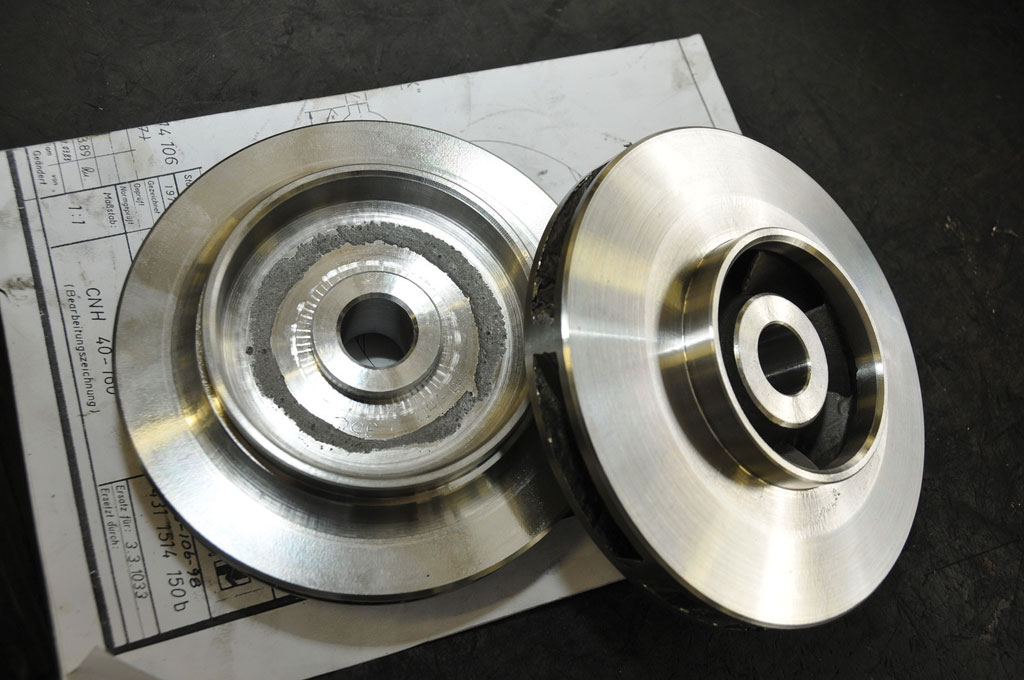
Final machined components
Houghton says that the company benefits from Allweiler’s research and development (R&D) team in Germany, but it also carries out its own R&D at its facilities in Isando, Johannesburg. Operating under the TUV ISO 9001:2000 quality management system, the company has a fully operational test-bed enabling it to carry out the testing of pumps at the factory.
The company supplies various pumps to the precious-metal industry, refinery, agriculture, and the general metal-finishing industry such as the automotive, chemical handling and hydro-carbon refineries, mining (including slurry pumps) and petrochemical sectors.
Foundry operation
Castings and raw materials were always sourced locally and all machining is completed at the factory in Isando. That was until earlier this year.
“All our units in the range are manufactured in cast iron, stainless steel – making them suitable for the petrochemicals industry and bronzes, depending on the industry requirements.”
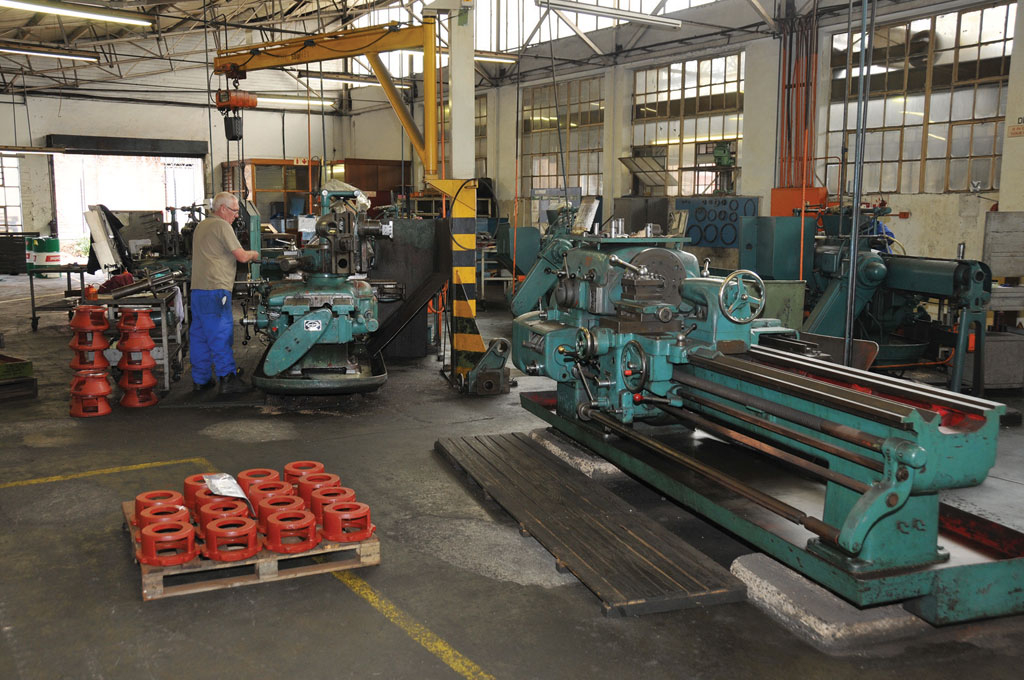
Rapid Allweiler still makes use of conventional machines
“We operate in a very competitive environment, especially if you take into account the influx of imports these days,” bemoaned Houghton.
“Since I started running the company there has always been an emphasis on service and quality. These aspects, at the end of the day, rescued the company from its troubled position 10 years ago. Therefore we have to monitor these areas constantly and sadly we were being let down constantly by the local suppliers. Deliveries were always late and the scrap rate on castings reached a level of 25%, and you only found this out once you had completed 11 hours of machining on the component, and you can’t recover this from the supplier,” said Houghton.
“In a way we were forced to make the decision to start our own foundry so we could control this aspect of the business. Every solution starts as a problem to be solved, and the process of getting from the problem to the solution involves research and evaluations, and decisions. Our decision was that much harder because we were not in the foundry business and we will not leap into new territory until we are certain that we have the right skills and people for the task.”
“Our factory manager, Duane Peters, who has some experience of working in a foundry while completing his tertiary education in Zimbabwe, came across an advertisement that was offering some foundry equipment for sale. That was back in January this year and by March we were pouring metal,” enthused Houghton.
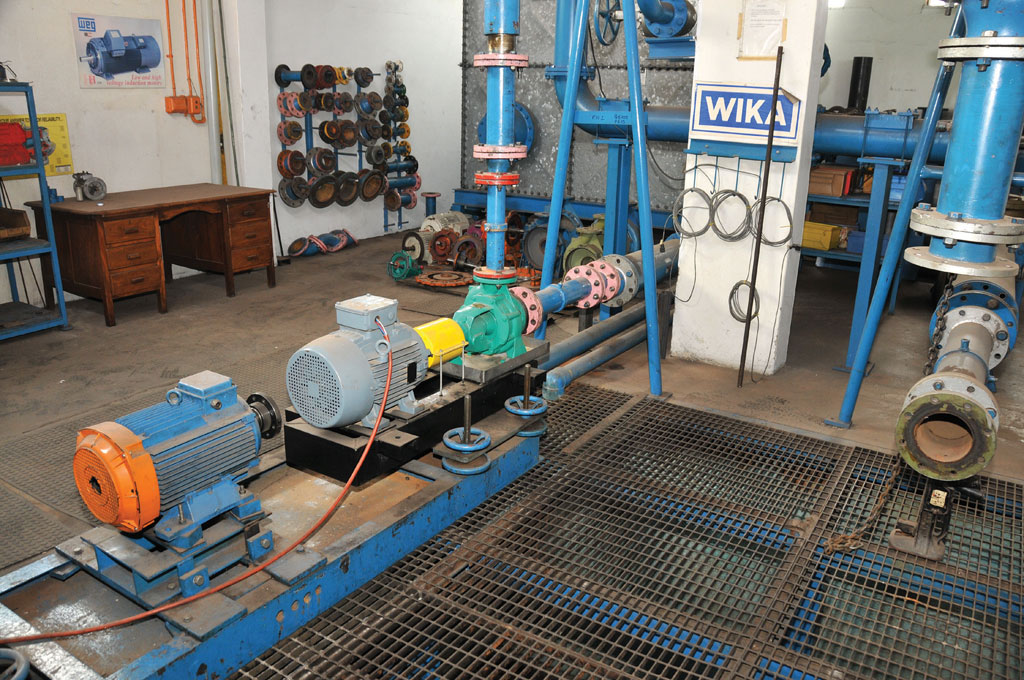
The company has a fully operational test-bed enabling it to carry out the testing of pumps at the factory
“The foundry is not a state-of-the-art masterpiece but is very functional and caters for our requirements adequately. We were fortunate that the equipment we purchased, which included a 350 Kg LH Power furnace, a coreshooter and a sand reclamation plant, was already set up in a foundry facility in Spartan, which is less than five minutes away from our current facility. Part of the negotiation was to rent the factory, where the equipment was installed. This certainly helped in getting us up and running so quickly as all the necessary services were in place. An added bonus was that there were a number of pieces of ancillary equipment essential to running a foundry that were also included.”
“We just had to get the equipment serviced, purchase a five ton an hour continuous mixer from Lauds Foundry Equipment and contact the consumable suppliers. We have set it up as a resin based foundry and I must compliment all the suppliers for the advice and help that they have given us.”
“We have subsequently purchased a Spectro spectrometer, which gives us the control on the metal quality, and are looking at other ways to improve our yield. The foundry occupies 2 000 m² and we have the option to double this space in the future.”
“Currently we are only pouring stainless 316 twice a week, which more than caters for our needs. The castings range from three to 150 kilograms and include seal plates, stuffing boxes, impellers, Francis veins and others. Our capacity is roughly 1 500 tons a year. More importantly we are supplying the machine shop at our main facility with quality castings on time.”
“Next year we are employing two student metallurgists from UJ who will complete a year of internship with us and hopefully we will be able to take them on permanently.”
“We have progressed so quickly that we are now starting to export castings to Allweiler in Germany. Going forward we are looking at pouring other metals, and once we are confident that we are past our learning curve we will start looking to supply outside.”
Machine shop
The machine shop at the main facility is equipped with a number of CNC lathes, machining centres and conventional equipment. This includes a Haas CNC lathe and a Victor Fortune CNC machining centre.
The operational flow in this area has had a major overhaul in the last few years, as well as the inspection and assembly areas.
The company now manufactures over 3 000 new units a year and carries a vast range of spares. Servicing of existing units also forms an integral part of the company’s service offerings.
Other ventures
Not one to miss an opportunity, last year Houghton opened up a conference and banqueting centre, which can cater for up to 120 delegates, at the main facility in Isando and after five years of negotiation has obtained dual zoning rights for the site. Plans are currently being finalised to build a 16-bedroom boutique hotel and spa, as well as a restaurant.
“My focus is on the engineering and manufacturing aspect of the business and my grandfather, who sadly passed away three years ago at the age of 98, would be proud of me, but food, beverage and hospitality are still my passion,” said Houghton with a smile.
For further details contact Rapid Allweiler on TEL: 011 573 7400 or visit www.rapidallweiler.co.za
